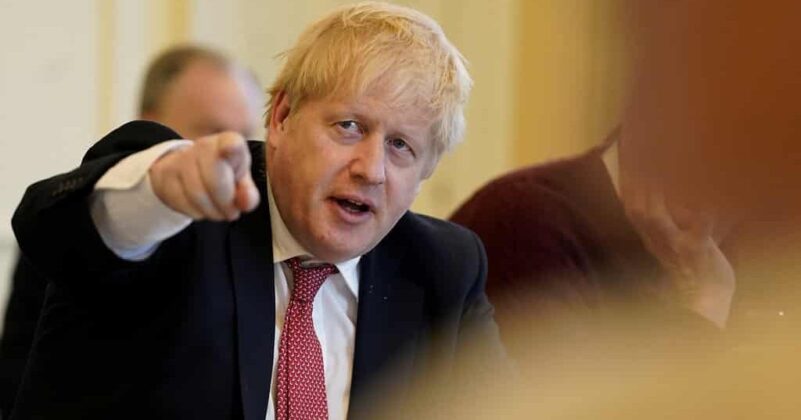

By KD Tait
The Tories are engulfed in a long drawn out crisis over rule-breaking parties in Number 10 during the strictest periods of the lockdown.
Boris Johnson was handed an 11th hour reprieve by Met police boss Dame Cressida Dick – returning the favour after Priti Patel saved her when brutal attack on women protesting after one of the force raped and murdered Sarah Everard.
Political interference from the Met is hardly a surprise, but it will rightly add to the popular feelings that the establishment are all in it together. And as inflation bites and anger soars at the inexplicable sums handed out to the Tories’ multimillionaire cronies in covid contract scams, the political and police elite have good reason to stick together.
But while public anger at the indecency of Johnson and Co partying whilst people could not visit relatives dying of covid is almost off the charts, we should not think that this rotten government will simply fall off the tree. Nor for that matter that anyone the Tories might choose to replace him would be any better for us.
Though Johnson’s position is precarious, the Tories’ strength lies in the 80-seat majority he secured for the Tories after turning the 2019 general election into a second referendum on Brexit.
But even the rebels on the Tory benches, know that his government has unfinished business, especially when he tosses them “the red meat” of attacks on workers living standards and public services. Even if Dominic Cummings succeeds in defenestrating Johnson, his replacement will not be Keir Starmer
Idle speculation about whether a disgraced Johnson will be in hock to the extremist wing of the Tories, or a fresh faced Thatcherite armed with a new mandate, is better from the point of view of Labour winning the next election should be of little or no concern to workers facing rampant inflation and attacks on the NHS.
Labour
To millions of working people facing the offensive on our living standards, democratic rights (PCSC Bill), racism (Nationalities Bill) and welfare (benefit and council cuts), the important paralysis is the Labour movement’s inability to take advantage of the chaos in government and fight for our own demands.
In April energy bills will skyrocket by up to 50% – but Labour wants to cut VAT (which amounts to just 5% of each bill) and force the poorest to apply for humiliating means-tested support. It talks about a windfall tax on profiteering energy bosses, but excludes the possibility of nationalising these greedy profiteers – despite that being Labour conference policy.
Faced with the single biggest attack on living standards in a generation, asking for a few crumbs from the table won’t worry the bosses.
While Starmer pontificates about Johnson ‘demeaning’ the office of prime minister, Johnson or any replacement is delivering for those who really rule Britain: workers back in the workplace, never mind the consequences, attacks on welfare to force more people into the labour market without raising wages, price rises on transport and energy so fat cat bosses can line their pockets and the further destruction of the welfare state through privatisation and cuts.
Despite the governmental crisis, it is the labour movement which is on the back foot. Whether Johnson survives the final publication of the Gray report, the Tories and the bosses will regroup for an offensive: our living standards, NHS and democratic rights are all in the firing line.
The limited but significant rise in the number of workers striking shows that real if limited defensive victories can be won by action at workplace and company level even if the participation levels in national ballots, necessary for legal strike action, are still hard to achieve.
The tens of thousands of young people who took to the streets in November against climate change and in January against the Police Bill demonstrates the determination to fight for a radical alternative.
But without a conscious strategy to overcome the low level of workplace organisation, to use political industrial action to stop the attacks on our democratic rights, to establish local committees of action to coordinate our campaigns and root them in working class communities – in short without revolutionising the labour movement and making it fit to fight, our separate struggles face being defeated separately.